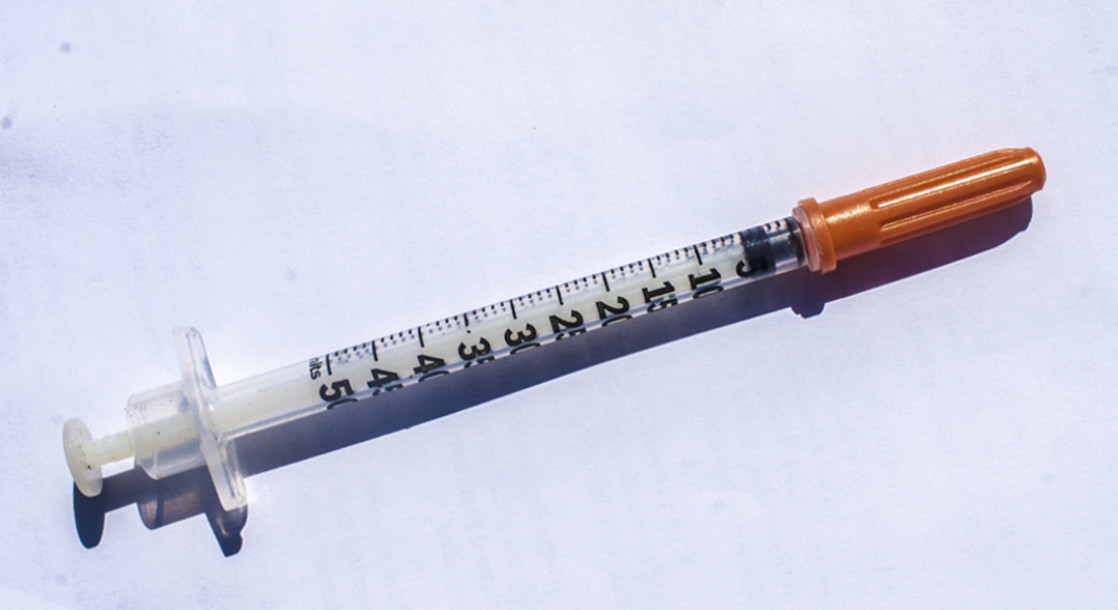Photo via Wheeler C.
A report from the Center for Disease Control and Prevention (CDC) released today paints a treacherous image of the country’s continued struggle with prescription and narcotic opioids, as American life expectancy declined in 2016 for the second consecutive year — an alarming trend that officials credit almost entirely to a 21% rise in opioid-fueled drug overdoses.
According to the Washington Post, the two-year drop in American life expectancy is the first such trend since 1962-63 when a widespread flu strain wreaked havoc in the States. Since then, only one other year has seen Americans on the whole shed years off their lives: a 1993 anomaly credited to the emergence of AIDS.
By the end of 2015, public health experts and politicians acknowledged the widespread effects of America’s opioid addiction problem and labeled it an epidemic, but without the necessary increase in addiction treatment and healthcare spending, the overprescription, addiction and overdose problem only increased. From 2015-16, overdose deaths increased by over 11,000 persons, from 52,504 to 63,632.
That increase was so significant that the rise in overdose deaths entirely offset a slight decrease in America’s leading cause of death, heart disease.
“I think we should take it very seriously,” said Bob Anderson, chief of the Mortality Statistics Branch at the National Center for Health Statistics (an agency of the CDC) to the Post. “If you look at the other developed countries in the world, they’re not seeing this kind of thing. Life expectancy is going up.”
In the U.S., though, the new statistics report that life expectancy dropped by one tenth of year in 2016, from 78.7 years to 78.6. Separated by gender, the overdose epidemic is significantly affecting men, with male life expectancy dropping by two tenths of year, from 76.3 years to 76.1, while women’s overall expectancy held steady at 81.1 years.
“It’s even worse than it looks,” said Keith Humphreys, an addiction specialist at Stanford University to the Post. “We could easily be at 50,000 opioid deaths last year. This means that even if you ignored deaths from all other drugs, the opioid epidemic alone is deadlier than the AIDS epidemic at its peak.”
But as stateside overdoses continue daily and the available data only indicates further deaths, American politicians have time and again failed to take significant action to curb the life expectancy dip, in particular ignoring piles of data suggesting that the use of medical cannabis has incredible effects on decreasing opioid dependence.
In a study published last month, researchers looked at chronic pain patients’ opioid use before and after enrolling in New Mexico’s medical marijuana program and found that over 80% of respondents significantly reduced theri opioid use within two years of cannabis use. In Colorado, researchers reported that opioid overdose deaths decreased by a rate of one per month in the two years after recreational cannabis was legalized.
Even from within the federal government, the White House-funded National Institute on Drug Addiction published an in-house study on their website last May that “Found an association between medical marijuana legalization and a reduction in overdose deaths from opioid pain relievers, an effect that strengthened in each year following the implementation of legislation.”
Still, politicians across the country, including President Trump and his anti-cannabis Attorney General Jeff Sessions, have all but ignored that data, choosing instead to focus on arresting heroin dealers and closing borders, a plan that has so far done nothing to stop opioid-related deaths.
And while a number of liberal politicians and Trump’s own Commission on Combating Drug Addiction and the Opioid Crisis have pleaded for emergency funding to fight the addiction epidemic, those same officials have largely remained mute about, or even spoken up against, using cannabis as an alternative to opioid treatment.
Patrick Kennedy, a former Democratic congressman and the founder of anti-cannabis lobbying group Smart Approaches to Marijuana, has instead continued to take a page from Sessions’ playbook, equating cannabis use with opioid addiction, while claiming that the only viable solution rests in pharmaceutical opioid receptor inhibitors.
In a conversation with the Post, Kennedy decried “a bias in recovery circles” that rejects those medications, but failed to mention his own unfounded bias against medicinal cannabis.
With no light yet shining from the end of the tunnel, American politicians will first have to get over their own personal prejudice before any real change can be made. As for 2017, the damage has already been done, but we’ll have to wait until next year to see the statistics, with CDC experts already predicting that life expectancy will decline for the third consecutive year.
“My guess is that when all of the data are in that the [2017] trend line will be at least as steep as for 2016, if not steeper,” Anderson said.











